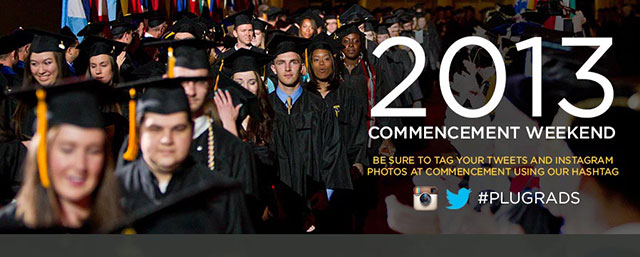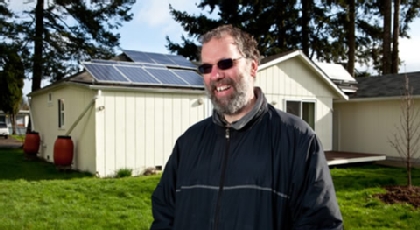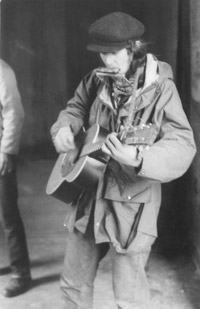Page 130 • (1,334 results in 0.061 seconds)
-
that this place will become a new community; one that challenges you, yes, but also supports you and helps you grow in ways that you can only imagine now. You’ll become part of a community that includes nearly 50,000 alumni scattered over 64 countries around the world. You’ll also form community with your professors and advisers. You’ll have the opportunity to work in close collaboration with faculty members…some of you may even have the opportunity to do published research and creative projects
-
millions of dollars worth of research and prevention programs throughout the world. The list of such new “global health” projects goes on and on, with new ones coming on line all the time. But success always brings with it the seeds of failure. There are lots of reasons why these attempts to improve the health of the world’s poorest might fail. There are just as many reasons to hope they succeed, if only because failure on this front would be to accept ongoing tragedy and disenfranchisement for one
-

. My PLU experience: My time at PLU has been an incredible journey. I’ve been challenged in so many ways and also rewarded for my hard work. PLU has provided me with so many wonderful opportunities, for which I am so grateful. In the last four years, I have visited three different countries, conducted research in two different tropical rain forests, written countless papers, and made some of the best friends a person could ask for. All these experiences have helped me flourish and grow into the
-

, business, marketing, etc.), needs skilled interpreters of that massive amount of valuable data available in order to promote progress. Tip: Interested in securing a marketing analytics career? Download PLU’s digital resource: Building a Career in a Data-Driven Age — A Guide to a Master’s in Marketing Analytics. According to the Bureau of Labor Statistics, the demand for market research analysts is expected to grow by 20% by 2028, a rate of growth much higher than the average for all occupations. The
-

off and on since the early 80’s, in a variety of settings. I’ve had some career detours from teaching, like, coaching a swim team, and owning a biker bar, and being a rural librarian, and a few other wacky things. I follow my curiosity. Through it all, I have been a prolific maker, I have documented my stories and adventures. My work can be found in over 90 public collections and art museums throughout the world, including the Victoria and Albert, the Library of Congress, The Getty Research
-

professors. “I’m really glad I went to PLU for computer science because of those connections I made,” Ronquillo said. “I feel like it was a lot more genuine and a lot easier to create those connections because of how small these classes were. I’m excited for the future.” Read Previous Information, Technology and Leadership: an interview with Port of Tacoma’s Mark Miller ’88 Read Next Music and Medicine: Elizabeth Larios ’21 returns to Namibia to research infections and teach marimba LATEST POSTS Three
-
most respectable form, it promotes a “World of Understanding” that students can use to learn about cultures and cultural diversity in the United States and abroad, develop intercultural skills and become involved citizens, both locally and globally. However, during my semester in Oaxaca and as part of my Kelmer Roe Fellowship research project on emigration, I found myself wondering who was included in the definition of global citizen and how the migrants impacted by globalization defined themselves
-

electricity used to heat hot water in a home. Tegels said there is a lot of misinformation circulating in an attempt to disprove the scientific research done about climate change. He said that enough scientific information points him in the right direction, and moving beyond science he said caring about the planet is simply common sense. “If you live in a beautiful environment there’s more of an incentive to care about the environment,” he said. It was PLU’s organ that attracted the green professor to the
-

I mean this was the real world. It gets wooly.” It was on this stretch that Youtz began discovering a compassion towards the global circumstance that would one day become manifest in the body of his work. In Katmandu, Youtz and Unsoeld landed a gig housesitting for John Seidensticker who was, at the time, conducting post-doctoral research on tigers and jaguars in the Tibetan backcountry. Seidensticker, who is now the head of the Conservation Ecology Center at the Smithsonian’s National
-

Washington, all of our students, regardless of their immigration status, are invaluable to the teaching we provide in our classrooms, the research we perform in our labs, and the discoveries we make in medicine. These students and those who came before them are not strangers on our campuses, in our communities, and in our homes. They are our [children], our neighbors, our co-workers, our friends and our family. They are us.” At PLU, it’s ingrained in our mission to educate and sustain communities through
Do you have any feedback for us? If so, feel free to use our Feedback Form.


